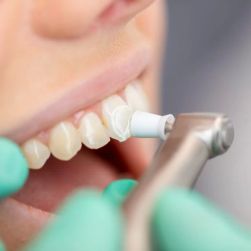Oral care is a critical component of overall health, yet it can often be overlooked, particularly for children and elderly individuals with special needs. Both groups can face unique challenges that require specific considerations, from understanding developmental stages in children to addressing age-related changes in the elderly. At Dentistry Toothtruth, we aim to shed light on these essential considerations, ensuring that all individuals receive the care and attention they deserve, improving their quality of life and health outcomes.
Understanding Special Oral Health Needs in Children
Children with special needs require distinct oral health care considerations due to factors such as developmental disabilities and medical conditions. Developmental disabilities can impact a child's ability to maintain oral hygiene, requiring caregivers and dental professionals to adapt their approaches. For instance, children with autism may experience sensory sensitivities that make traditional dental visits challenging. Strategies such as using visual aids, desensitization practices, and incorporating relaxing environments can significantly enhance their dental experience.
Moreover, medical conditions such as congenital heart disease or diabetes in children necessitate that oral health care providers work closely with medical professionals to provide safe and effective care. Specific precautions may include pre-treatment antibiotics or tailored oral care regimes to prevent complications. The aim is to integrate seamless communication between families, dentists, and healthcare professionals to address the unique needs of each child.
Addressing Oral Health in Elderly Individuals with Special Needs
Elderly individuals, particularly those with special needs, often face complex oral health challenges, including higher risk of dental caries, periodontal disease, and tooth loss. Factors such as medication side effects leading to dry mouth, cognitive disorders, and impaired dexterity can complicate oral hygiene practices. Dentistry Toothtruth emphasizes the importance of regular dental check-ups tailored for the elderly to prevent these issues and maintain oral function.
Adjustments in dental care might include the use of specialized dental tools to accommodate mobility impairments or the implementation of fluoride treatments to protect against tooth decay. Moreover, dental professionals should be trained to understand and manage the complexities of geriatric care, ensuring that elderly patients with special needs receive compassionate and comprehensive treatment.
Integrating Family and Caregivers in Oral Health Practices
For both children and elderly individuals with special needs, family members and caregivers play a crucial role in maintaining oral health. Education and support are key components, involving training on proper brushing and flossing techniques adapted to the individual’s abilities and needs. At Dentistry Toothtruth, we encourage engaging caregivers in creating positive routines and behaviors that promote oral health.
Family members can be empowered through workshops and resources that provide insight into recognizing oral health issues early and understanding when professional intervention is required. This collaborative effort between caregivers and dental professionals ensures that patients receive a consistent and supportive approach to their oral health care.
Promoting a Holistic Approach to Oral Health
At Dentistry Toothtruth, promoting a holistic approach to oral health involves considering the entire wellbeing of the individual, beyond just their dental needs. Nutrition plays a significant role, as a balanced diet can prevent oral health problems and improve overall wellness. Dental professionals should advise on dietary choices that strengthen teeth and gums, tailored to the specific needs and conditions of the patient.
Additionally, fostering mental and emotional wellbeing is part of comprehensive care. For instance, reducing anxiety around dental visits can improve patient cooperation and outcomes, particularly in individuals with special needs. This may involve creating a calm and predictable environment or using therapeutic practices such as cognitive behavioral techniques to ease dental fears.
In conclusion, providing oral care to children and elderly individuals with special needs requires a focus on personalized, compassionate care. By recognizing and adapting to their unique challenges, we can ensure that these individuals receive the supportive and comprehensive treatment they need. At Dentistry Toothtruth, we are committed to educating and collaborating with families and caregivers to enhance oral health outcomes through shared dedication and expertise. We encourage taking proactive steps to integrate these considerations into daily routines and dental practices, ultimately fostering a healthier, happier life for everyone involved.






